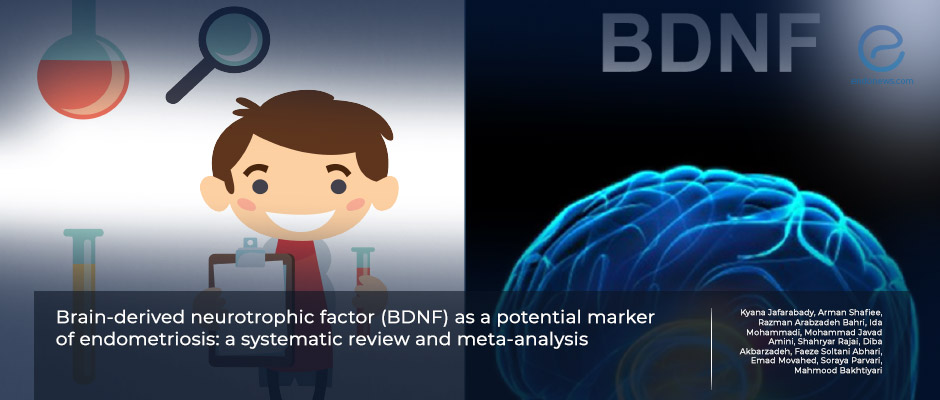Could brain-derived neurotrophic factor (BDNF) be a potential marker of endometriosis ?
Feb 20, 2024
Published research papers revealed higher levels of BDNF in endometriosis
Key Points
Highlights
- Scientific research revealed that brain-derived neurotrophic factor (BDNF), even though synthesized primarily in the brain, may also be expressed in the reproductive system.
- Peritoneal fluid, serum, and endometrial tissues of women with endometriosis have yielded elevated levels of BDNF in comparison to healthy controls.
Importance
- BDNF may have a role in the pathogenesis of endometriosis and may serve as a diagnostic or prognostic marker.
What's done here
- The authors have made a comprehensive search in four international databases, intending to identify published articles evaluating levels of BDNF in endometriosis.
Main key feature
- In the final analysis of twelve published research papers, blood levels of BDNF were found to be significantly higher in endometriosis patients.
Potential limitations
- Escalating rates of depression and different types of mental disorders besides the administration of several medicines including analgesics may all affect BDNF levels in individuals. The selected studies in this meta-analysis have not considered such factors in their participants.
- Another drawback is the small number of research papers and participants.
Lay Summary
Medical student Kyana Jafarabady and academicians from several medical centers in Iran have published their database research on Brain-derived neurotrophic factor (BDNF) in endometriosis patients in a recent issue of BMC Women’s Health. BDNF is a neurotrophin that plays an important role in the development, survival, and plasticity of neurons of the central nervous system. However scientific research suggests that it is also expressed in peripheral tissues, including the reproductive system. High levels of BDNF have been reported in the peritoneal fluid, serum, and endometrial tissue of women with endometriosis in comparison to healthy controls. BDNF could be involved in the pathogenesis of endometriosis and may also serve as a diagnostic or prognostic marker.
The authors have made a comprehensive search in four international bibliometric databases intending to identify any published article that evaluated the altered levels of BDNF in endometriosis. A search of these electronic databases yielded a total of 192 articles, however, removing duplicates and applying the inclusion and exclusion scientific criteria, a final number of 12 articles were included in the meta-analysis.
The study results revealed an important relation between BDNF levels and endometriosis. The pooled standardized mean difference of BDNF levels between women with endometriosis and controls indicated higher BDNF levels in women with endometriosis. However, socioeconomic status may lead to escalating rates of depression and different types of mental disorders besides administration of several medicines including analgesics may all affect BDNF levels in individuals.
The 12 selected studies in this meta-analysis have not considered the above-mentioned factors in their participants. Another limitation of this meta-analysis is the small number of research papers and participants, further research should be made in this regard. The authors conclude that more work needs to be done to determine the correlation between BDNF level and endometriosis and to reveal the diagnostic value of BDNF.
Research Source: https://pubmed.ncbi.nlm.nih.gov/38218833/
brain-derived neurotrophic factor BDNF endometriosis medical databases

